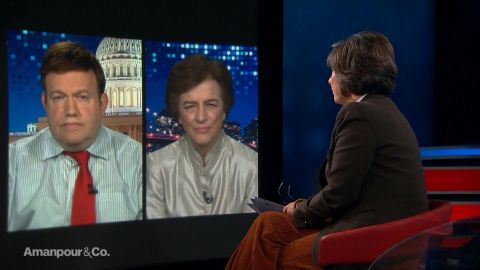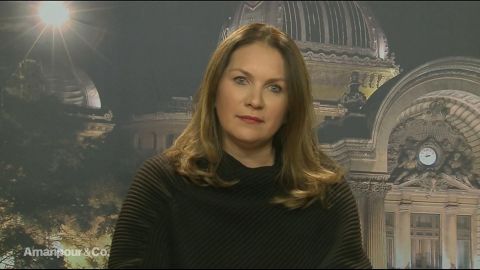Read Transcript EXPAND
CHRISTIANE AMANPOUR: Tell me what surprised you or what didn’t in the fact that he was caught now and that he is no longer?
RUKMINI CALLIMACHI, CORRESPONDENT, THE NEW YORK TIMES: In a way, I’m not surprised. I was alerted to the fact that the U.S. knew his whereabouts as early as July. We have two sources at the” New York Times” who have confirmed that the U.S. had identified his location in Idlib as far back as 3 1/2 months ago. The question was, when the raid was going to take place. And what we have learned is that the raid was rushed as a result of the chaos that is now engulfing Northern Syria as a result of President Trump’s decision to allow Turkey to invade that area.
AMANPOUR: Rukmini, let me just dive down into that a little bit then. Clearly, the Pentagon — I mean, if you at the “New York Times” knew where he was, obviously, the U.S. military knew where he was and the Syrian Kurds presumably knew where he was. Why would they have unsettled the terrain, so to speak, and potentially risk this meticulous operation to get him?
CALLIMACHI: What I was told is that back in July when they identified the location in this corner of Idlib where they believed that he was, it was considered too unsafe for U.S. forces to go in. It is now clear why. This is an area that is known for being ruled by rebel groups that are affiliated with al-Qaeda. It is also an area that is under (INAUDIBLE) and Syrian air space, and that makes it difficult for the U.S. to go in. I believe, from speaking to sources, that the reason that they went ahead with the raid now is that as the U.S. pulls out of this area of Northeastern Syria, it’s going to be increasingly more difficult to have eyes on the ground, to have what they called HUMINT, human intelligence on the ground, as well as to have the drone footage and the overhead surveillance that allows these kind of raids too take place.
AMANPOUR: Rukmini, given everything you discovered and all the people you interviewed about Baghdadi and knowing his character and the arc of his rise, essentially, from kind of a shy boy, as we understand, then, you know, arrested by the United States in the aftermath of the Iraq war, put into an American prison and there he became very harshly radicalized against the U.S. and against the world. Does it — do you understand and did you expect him to kill himself or did you think that he would never give himself up willingly and also, allegedly he killed three of his children?
CALLIMACHI: The pattern that we have seen with members of ISIS, we saw this in Mosul as well as in Raqqah, is that even women were wearing suicide belts, and in certain occasions, they would detonate those as coalition forces came in.
About This Episode EXPAND
Rukmini Callimachi discusses Abu Bakr al Baghdadi’s death and what it may mean for ISIS; Republican pollster Frank Luntz and former U.S. Rep. Elizabeth Holtzman give an update on the political climate in Washington; and Aarti Shahani reflects on her childhood, her father’s imprisonment and the American Dream.
LEARN MORE


